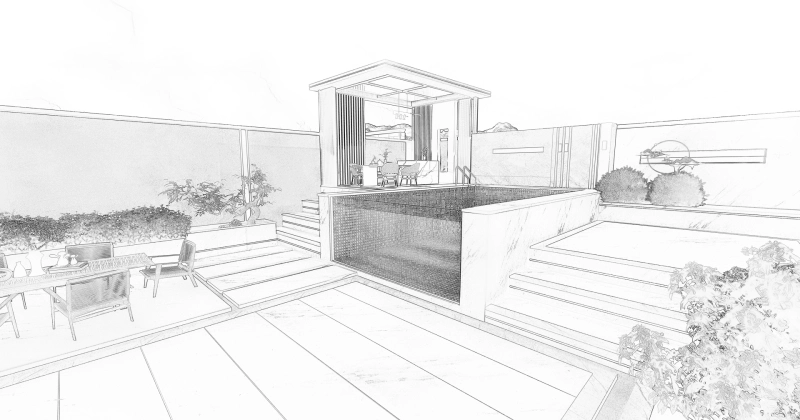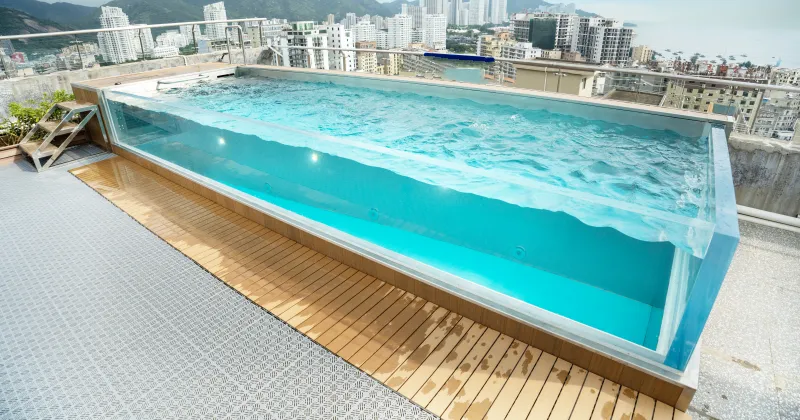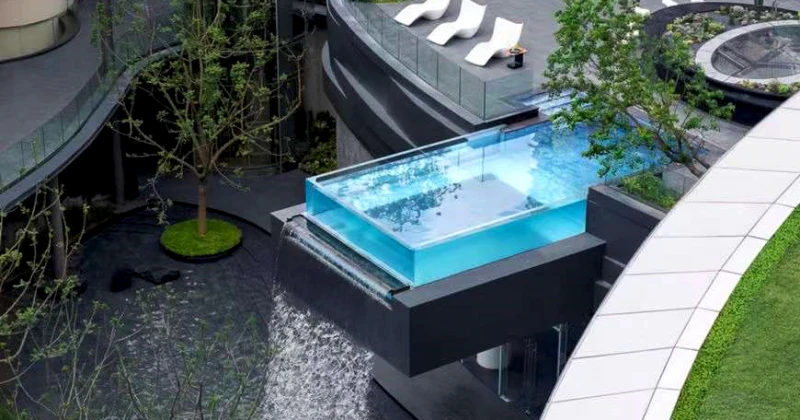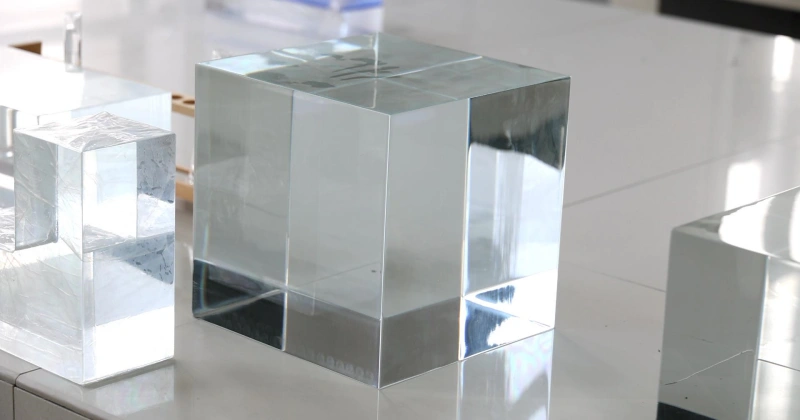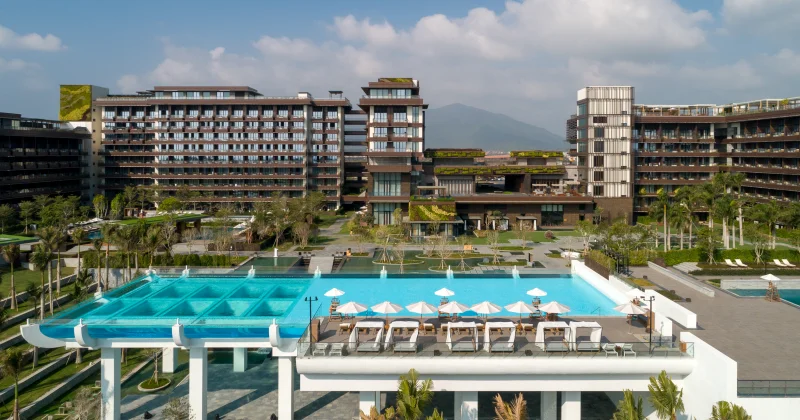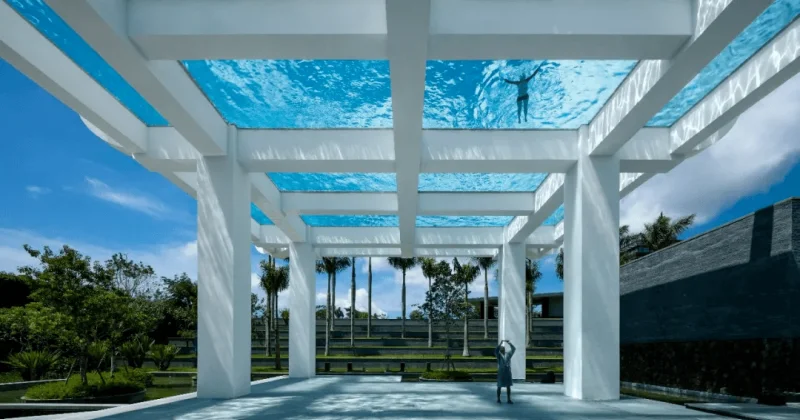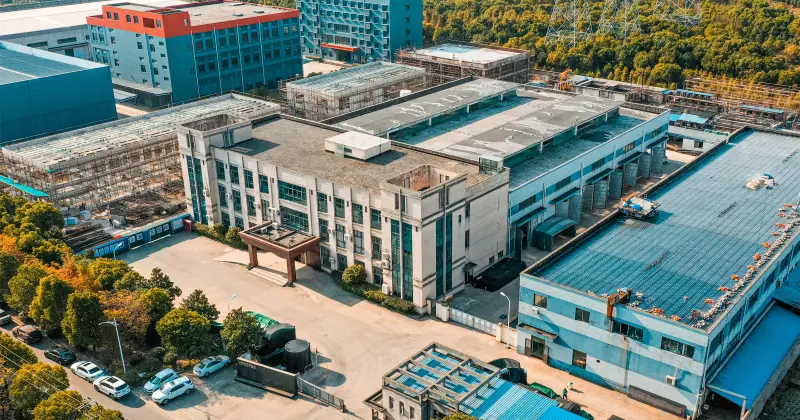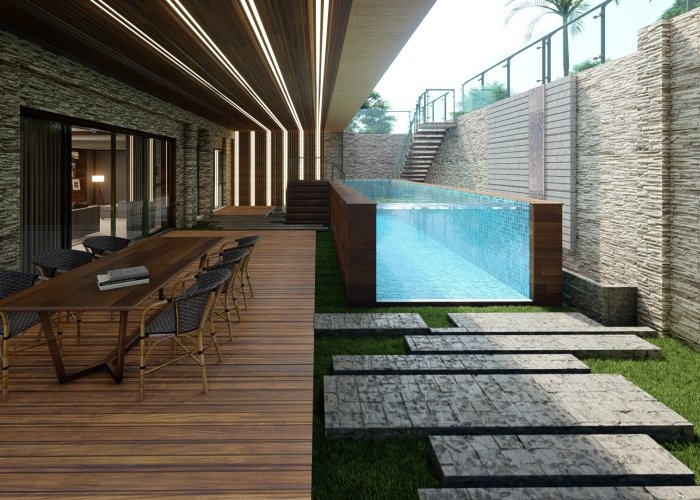
Maintaining Your Above-Ground Pool Tips for Clean and Safe Swimming
Having an above-ground pool is a great way to beat the heat during the summer without having to spend thousands of dollars on an in-ground pool. However, to make the most out of your investment, it is important to maintain it regularly. Pool owners face the common challenge of maintaining clear, safe, and chemically balanced water for swimming, which can be costly.
This guide is designed to help you understand all there is to know about how to care for your above-ground pool. It will highlight the differences between above-ground and in-ground pools and also present 10 expert tips to ensure the cleanliness and safety of the pool.

Is Above-Ground Pool Maintenance Different from In-Ground Pools?
Yes, there are differences when it comes to maintaining an above-ground pool and an in-ground pool, but the fundamentals are still the same. Knowing these differences will assist you in maintaining your swimming pool and not making some frequent mistakes.
Structural Differences
The first and perhaps the most obvious is the structure of the pool. As for above-ground pools, the walls and the frames are exposed to weather, making them more fragile. This means that you’ll need to look at the outside of the pool and check for any signs of rust, cracks, or wear and tear. On the other hand, in-ground pools are more protected because the pool's walls are buried in the ground.
Filtration Systems
Because of the size of above-ground pools, filtration systems are generally smaller than those for in-ground pools. Therefore, to maintain proper water circulation and filtration, above-ground pool owners need to operate the pump more often. Regularly checking and cleaning your filter is essential to keeping the water clear and free of debris.
Winterization
Maintaining an above-ground pool during winter is quite different from that of an in-ground pool. Since these pools are built above the ground they are more vulnerable to freeze damage thus you will need to prepare them for the winter by partially emptying them, covering them, and storing the accessories inside.
Knowing the differences outlined above is essential to take care of your above-ground pool and ensure that it stays in tip-top condition throughout the year.
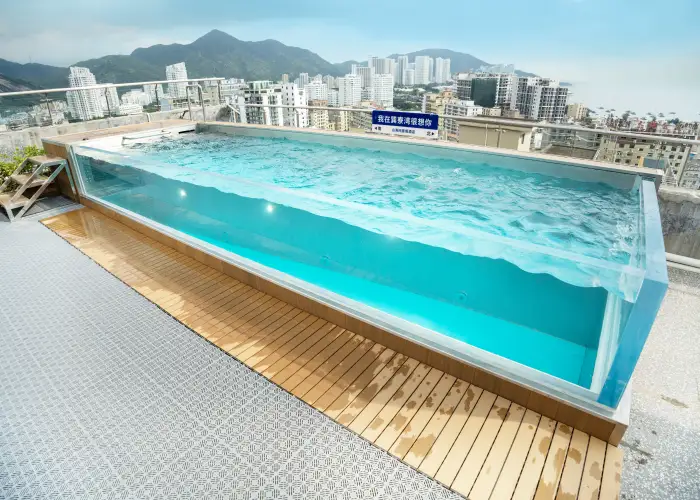
10 Tips to Take Care of Your Above-Ground Pool
Regular maintenance is the key to enjoying a sparkling clean and safe pool. Whether you have a round pool, rectangular pool, or above-ground oval pool, these tips will help you maintain the best above-ground pool experience possible.
1. Test and Balance the Water Regularly
The quality of water should also be well maintained to ensure that the water is clean for swimming and other water activities. Test the pool water at least twice a week using a good quality test kit to check the pH, alkalinity, and chlorine.
The water pH should be maintained between 7.2 to 7.6 to avoid skin rash or damage to the pool liner due to very acidic or alkaline water. Chlorine should be always between 1 and 3 ppm because it eliminates bacteria and does not allow algae to grow.
2. Clean the Pool Walls and Floor
Typically, the walls and the floor of your pool are exposed to dirt, algae, and other debris, especially in the larger pools. The walls and floor of the pool should be cleaned at least once a week using a good pool brush to make your pool look fresh and inviting. This routine is effective in preventing the growth of algae, staining, and slippery pool surfaces. It is even more important for the vinyl-lined pools because the stains are harder to remove if they are left for too long.
3.Skim the Surface Daily
This is particularly true for leaves, bugs, pollen, and other debris that may be falling into your pool and onto the water surface. Not only is this unattractive for your pool but it also poses a problem for your filtration system by clogging it up and in turn the quality of the water in your pool will suffer. Always use the skimmer net every day to scoop out debris that floats on the surface especially after a windy or stormy day as dirt tends to settle on the surface faster.

4. Run the Pool Pump Daily
The pool pump is the most important component of your pool filtration system because it ensures that your water is always in its best state as far as cleanliness and safety are concerned. It facilitates water movement and prevents the growth of algae, ensures even distribution of chemicals, and prevents water accumulation. For the best results, you should keep your pump running for at least eight hours a day, especially in summer or after a swimming party when the water is frequently used.
For the larger above-ground pools you can choose to run your filter for a longer time, say 10-12 hours, to ensure that all water is well filtered. This will help you make sure your pool will always be clean and ready for use!
5. Clean the Filter Regularly
Your filter is one of the most effective systems in your pool as it is responsible for trapping the dirt, debris, and contaminants that get into the pool. However, the more particles it catches, the more it could become clogged and may not be as efficient as before. For this reason, it is advisable to clean the filter or to backwash the sand filter once a month for proper sanitation of water in the pool.
If you use your pool often, it is wise to clean it more often. A well-maintained filter not only helps to keep the water as clear as possible but also to avoid algae growth so you can have safe and comfortable swimming throughout the season.
6. Shock the Pool Weekly
Superchlorination or “shocking” a pool is the process of adding a large amount of chlorine to kill off bacteria, algae, and other things that normal levels of chlorine cannot kill. It is also recommended especially after a pool party, during stormy weather, or if the water looks dirty or has a bad smell.
When you shock your pool you are essentially giving it a good clean and this helps to keep your water as clear and safe as possible. Most pool experts recommend that you shock your pool once every week, but always refer to the manufacturer’s recommendations on the amount of shock to use since using too little or too much can be damaging to the health of your pool.

7. Invest in a Pool Cover
One way of ensuring that your pool is well maintained is to cover it especially when it is not in use. It serves as a protective cover that keeps out leaves, dirt, insects, and other contaminants from falling into the water thus saving time that would have been spent scooping them out. Also, a cover will help protect the pool from external factors and reduce the costs of heating.
It is probably crucial for the larger above-ground oval pool designs that can take some time to maintain. It will also mean that you have to use fewer chemicals to maintain the pool.
8. Monitor Water Levels
Some of the things that may lead to a change in the water level of the pool include; evaporation, splashing by swimmers, or even rainwater. It is quite crucial to maintain the water level at half the skimmer opening as this is where the filtration and circulation occur. If the water level drops below a certain point, your pump may draw in air, which can be damaging to the system or cause the whole thing to break down.

9. Check for Leaks and Damage
Above-ground pools tend to wear out faster, especially around the liner, frame, and connections. Some of the things you should check on your pool include; leaks, rust spots, tears, or any form of damage that may develop with time. A minor problem if not fixed can lead to major and costly damage and may also bring an early end to the life of your pool.
10. Winterize Your Pool Properly
After using your pool during the swimming season, it is important to prepare it for the winter season so that it will not be damaged by freezing conditions. First of all, to clean the pool, then normalize the water and finally to reduce the water level. You can use any winter cover meant for above-ground pools and ensure that you remove all other accessories such as ladders and pumps from the pool. Winterization is important so that you can use the pool as soon as the harsh winter season is over.

Conclusion
Caring for an above-ground pool is not as complicated as it may appear, with these tips you can keep your pool clean, safe, and fun for everyone to use. It is very important to take care of your pool and provide it with regular care since it will not only make your pool last longer but also make your swimming environment as healthy as possible for you and your family.
Therefore, if you are looking for above-ground pools for sale or already have one, these maintenance tips will help you keep your pool looking good, feeling cool, and being a great source of pleasure for many years. Happy swimming!






